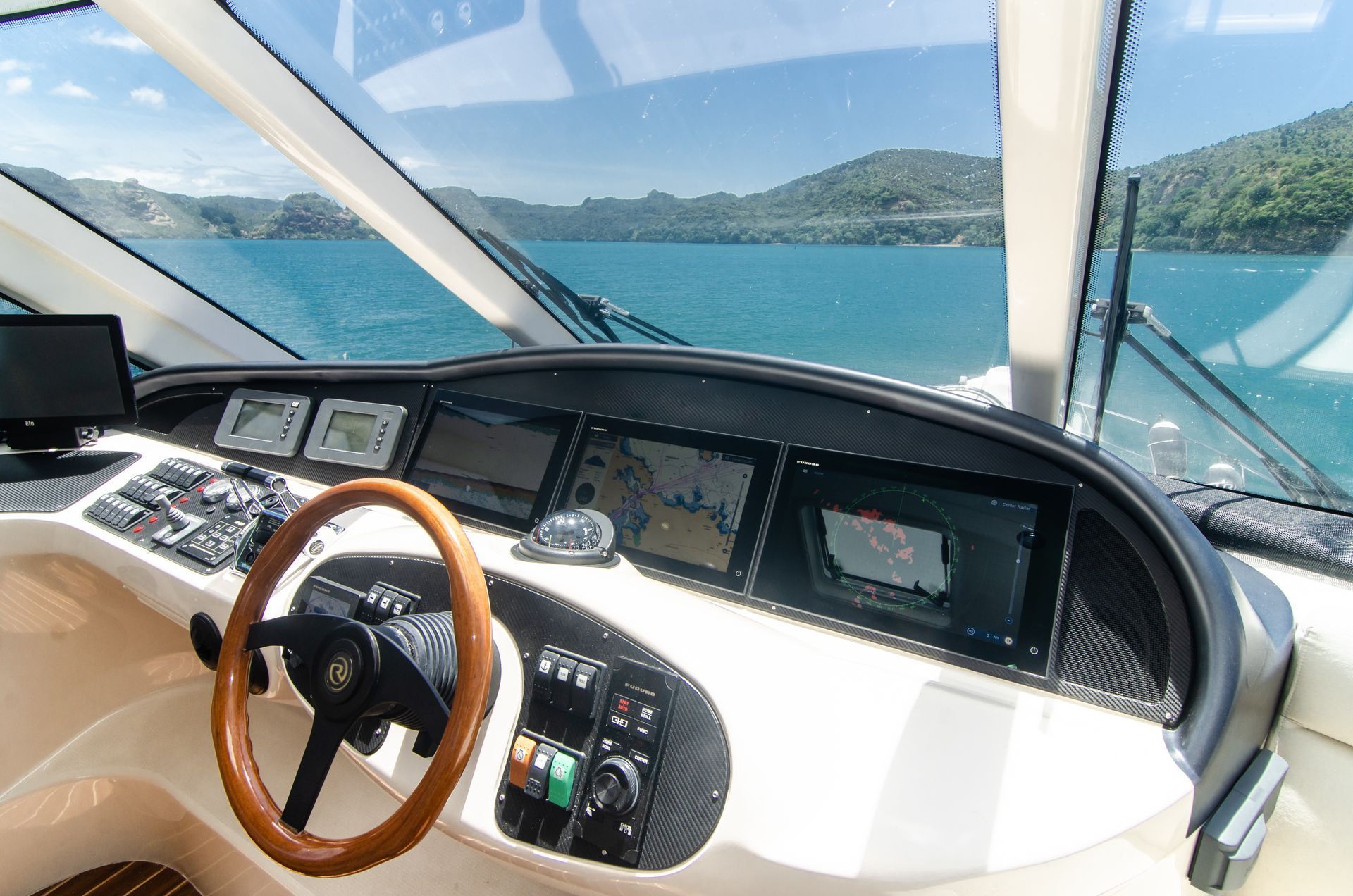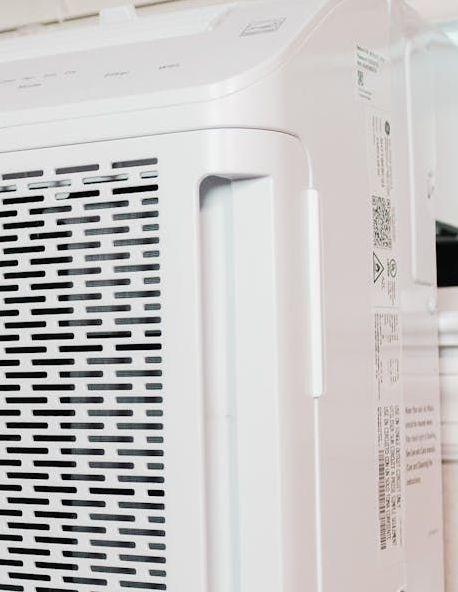Marine AC Repair Cape Coral, FL
Air Conditioning in Boats
Keeping Your Cool on the Water in Cape Coral, FL
Boating in warm climates like Cape Coral, FL can be a blissful experience, but the intense heat and humidity can quickly turn a day on the water into an uncomfortable ordeal. A reliable marine air conditioning (AC) system is essential for maintaining comfort on board. However, like any complex system, marine AC units can experience problems that require timely repairs. At Mobile Boat Mechanic Cape Coral, FL, we specialize in marine AC repair services, ensuring that your vessel remains comfortable and cool. We will cover common issues with marine AC systems, how to troubleshoot them, and how our professional
boat repair services can help keep your system in top condition.

Understanding Marine AC Systems
Marine air conditioning systems are designed to operate in the challenging marine environment. They are typically more robust than standard residential units, with components that can withstand saltwater corrosion and constant motion. These systems usually consist of the following main components:
- Compressor: The heart of the AC system, compressing refrigerant and enabling heat exchange.
- Condenser: Cools down the compressed refrigerant, turning it from a gas back into a liquid.
- Evaporator: Absorbs heat from the cabin air, cooling it down before it's circulated back into the cabin.
- Thermostat: Controls the temperature settings and regulates the system's operation.
- Pump: Circulates seawater to cool the condenser.

Common Marine AC Issues and Their Causes
Marine AC systems, though built for durability, are not immune to problems. Here are some common issues and their potential causes:
Insufficient Cooling
When your marine AC system isn’t cooling the cabin effectively, it could be due to several reasons:
- Low Refrigerant Levels: Leaks or insufficient refrigerant charge can reduce the system's cooling capacity.
- Clogged Air Filters: Dirty filters can restrict airflow, causing the unit to work harder and cool less efficiently.
- Blocked Condenser Coils: Accumulation of salt, dirt, and debris can obstruct the condenser coils, reducing heat exchange efficiency.
System Not Turning On
If your AC system fails to start, consider these potential causes:
- Electrical Issues: Faulty wiring, blown fuses, or tripped circuit breakers can prevent the system from powering up.
- Thermostat Problems: A malfunctioning thermostat may fail to signal the AC unit to start.
- Pump Failure: If the seawater pump isn’t working, the system can overheat and shut down.
Unusual Noises
Unusual sounds from your AC unit often indicate mechanical issues:
- Loose Components: Vibration and movement can cause screws and bolts to loosen over time.
- Worn Bearings or Belts: Regular wear and tear can lead to noisy bearings or belts in the compressor or fan.
Water Leaks
Water leakage around your AC unit can be due to:
- Clogged Drain Lines: Blockages can prevent condensation from draining properly.
- Leaking Pump or Connections: Worn seals or loose connections in the seawater pump system can cause leaks.
Our Professional Marine AC Repair Services
Some marine AC issues can be resolved with basic tools and a bit of know-how, but others require professional intervention. At Mobile Boat Mechanic Cape Coral, FL, we offer a range of marine AC repair services in Cape Coral to keep your system running smoothly. Our Services for Trailer repair and fiberglass repair might also interest you.
Comprehensive Inspections
Our technicians start with a detailed inspection to identify all areas of damage and assess the extent of repairs needed. We ensure every component of your AC system is checked for optimal performance.
Electrical Repairs
Handling electrical components can be dangerous without proper knowledge and tools. Our experts can diagnose and repair any electrical issues, ensuring your system powers up safely and reliably.
Refrigerant Services
Refrigerant handling requires specialized equipment and certification. Our professionals can safely locate and repair leaks, recharge the system, and ensure it operates at peak efficiency.
Major Component Repairs
Issues with the compressor, pump, or significant leaks are complex and often require professional diagnosis and repair. We have the expertise and equipment to handle major repairs, restoring your AC system to its best condition.
Preventative Maintenance
Regular maintenance is crucial for ensuring the longevity and efficiency of your marine AC system. We offer preventative maintenance services to keep your system in top shape and prevent future problems.
Emergency Repairs
In the event of unexpected damage, our emergency repair services are just a call away. We understand that time is of the essence when it comes to maintaining your boat’s performance and safety. Contact us immediately for prompt, expert repairs.

Troubleshooting Marine AC Problems
Before diving into repairs, a systematic troubleshooting approach can help identify the root cause of the problem. Here are some steps to follow:
Step 1: Check the Power Supply
Ensure the AC unit is receiving power. Check the circuit breakers and fuses, and inspect the wiring for any visible damage.
Step 2: Inspect the Thermostat
Verify that the thermostat is set to the desired temperature and functioning correctly. Replace batteries if necessary and ensure it’s properly connected to the system.
Step 3: Examine the Air Filters
Remove and inspect the air filters. Clean or replace them if they are dirty or clogged.
Step 4: Inspect the Condenser and Evaporator Coils
Look for signs of blockage or corrosion on the coils. Clean them using a soft brush and a suitable cleaning solution if necessary.
Step 5: Check Refrigerant Levels
Low refrigerant levels often require a professional to locate and repair leaks and recharge the system.
Step 6: Inspect the Pump and Water Lines
Ensure the seawater pump is operational and check for any blockages or leaks in the water lines.
Experience the convenience of marine mechanic help delivery ;-)
Navigation
Area
Cape Coral, Caloosahatchee, Hancock, Pelican, Burnt Store, Fort Myers, North Fort Myers, Iona, Cypress Lake, McGregor, Bonita Springs, Fort Myers Beach, St. James City, Estero and Sanibel
Working hours
- Mon - Fri
- -
- Sat - Sun
- Appointment Only
All Rights Reserved | Powered by Snapps